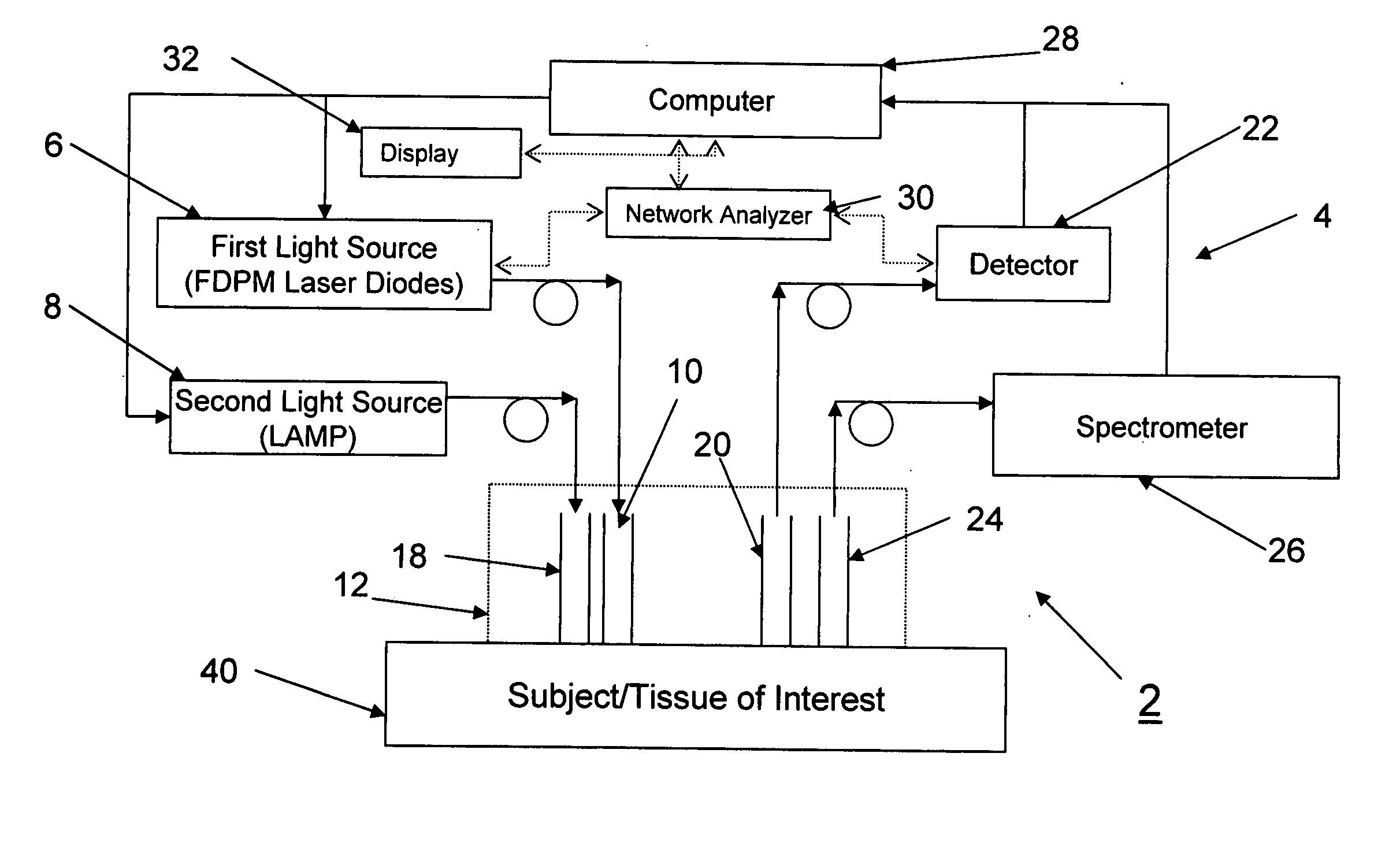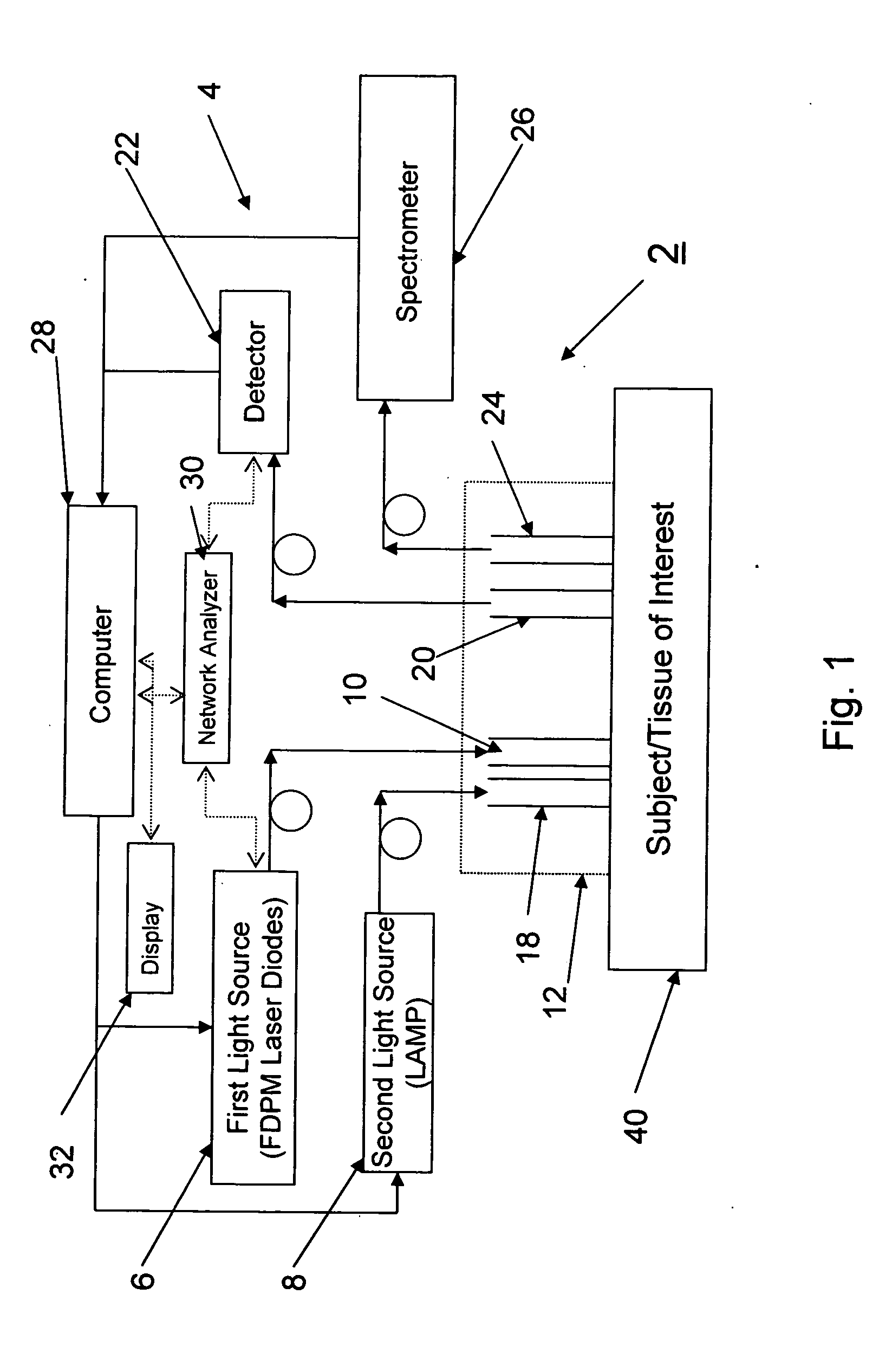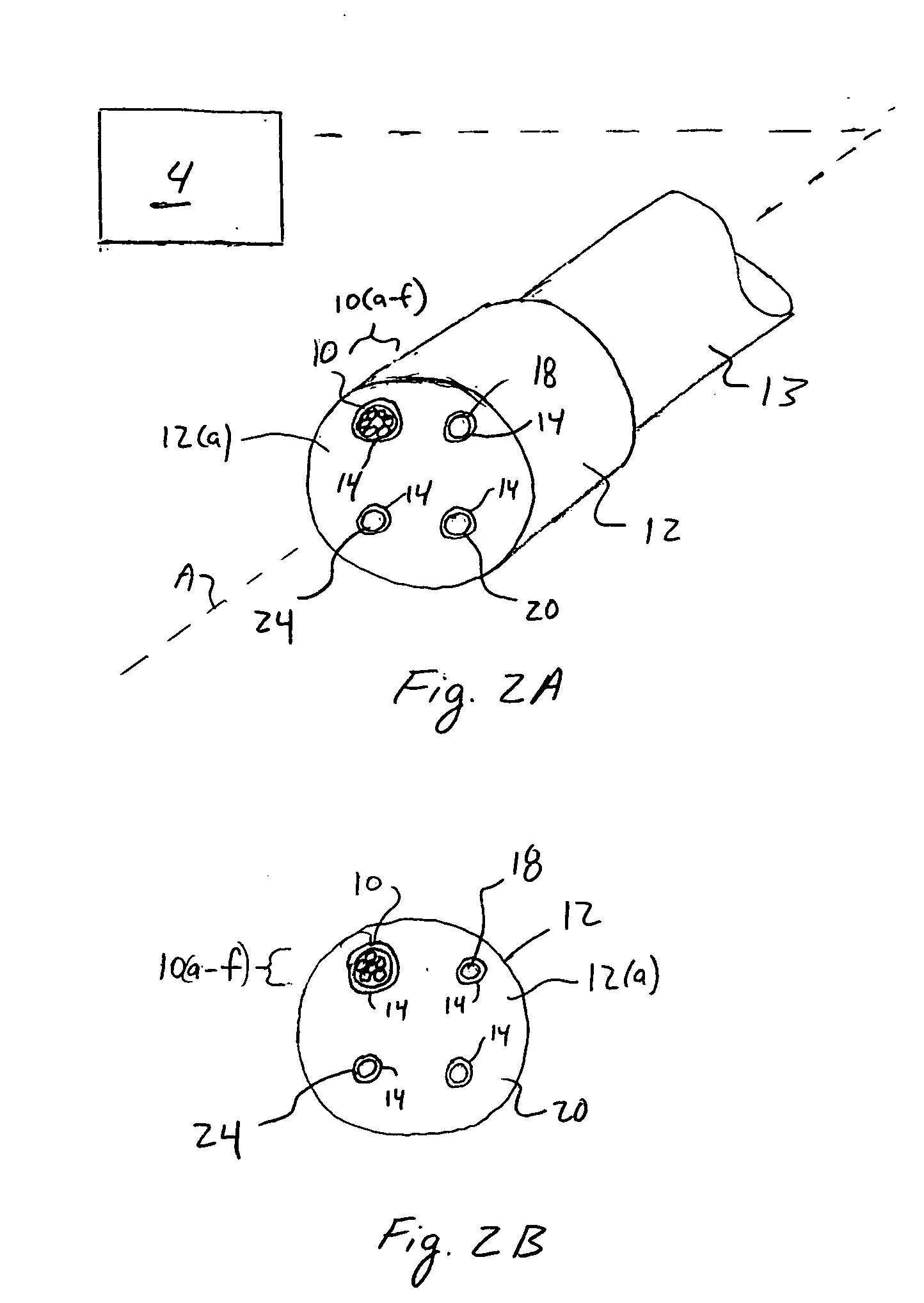Method and apparatus for dynamically monitoring multiple in vivo tissue chromophores
a tissue chromophores and dynamic monitoring technology, applied in diagnostic recording/measure, instruments, applications, etc., can solve the problems of not reporting absolute biochemical concentrations in tissue, unable to separate light absorption from scattering, and difficult to quantitatively and dynamically monitor biochemical processes
- Summary
- Abstract
- Description
- Claims
- Application Information
AI Technical Summary
Benefits of technology
Problems solved by technology
Method used
Image
Examples
Embodiment Construction
[0031]FIG. 1 illustrates a system 2 according to a preferred aspect of the invention. The system 2 generally includes a diffuse optical spectroscopy (DOS) device 4. The DOS device 4 includes a first light source 6 which preferably emits radiation at multiple wavelengths. For example, the first light source 6 may comprise multiple laser diodes each operating a different wavelengths. One exemplary example uses six laser diodes operating at wavelengths of 661 nm, 681 nm, 783 nm, 823 nm, and 910 nm. Another exemplary example includes six laser diodes operating at wavelengths of 658 nm, 682 nm, 785 nm, 810 nm, 830 nm, and 850 nm. Generally, at least three wavelengths are used to obtain FDPM measurements. In addition, in one aspect of the invention, the wavelengths are chosen within the range of about 600 nm to about 1000 nm. The plurality of laser diodes may be successively switched using a computer-controlled diode controller (ILX Lightwave LDC-3916 Laser Diode Controller) coupled to a ...
PUM
 Login to View More
Login to View More Abstract
Description
Claims
Application Information
 Login to View More
Login to View More - R&D
- Intellectual Property
- Life Sciences
- Materials
- Tech Scout
- Unparalleled Data Quality
- Higher Quality Content
- 60% Fewer Hallucinations
Browse by: Latest US Patents, China's latest patents, Technical Efficacy Thesaurus, Application Domain, Technology Topic, Popular Technical Reports.
© 2025 PatSnap. All rights reserved.Legal|Privacy policy|Modern Slavery Act Transparency Statement|Sitemap|About US| Contact US: help@patsnap.com



